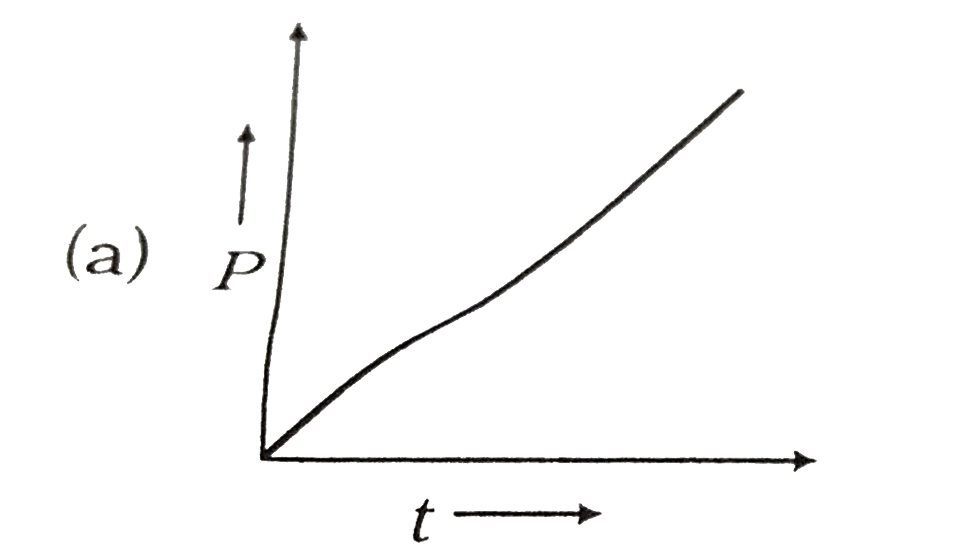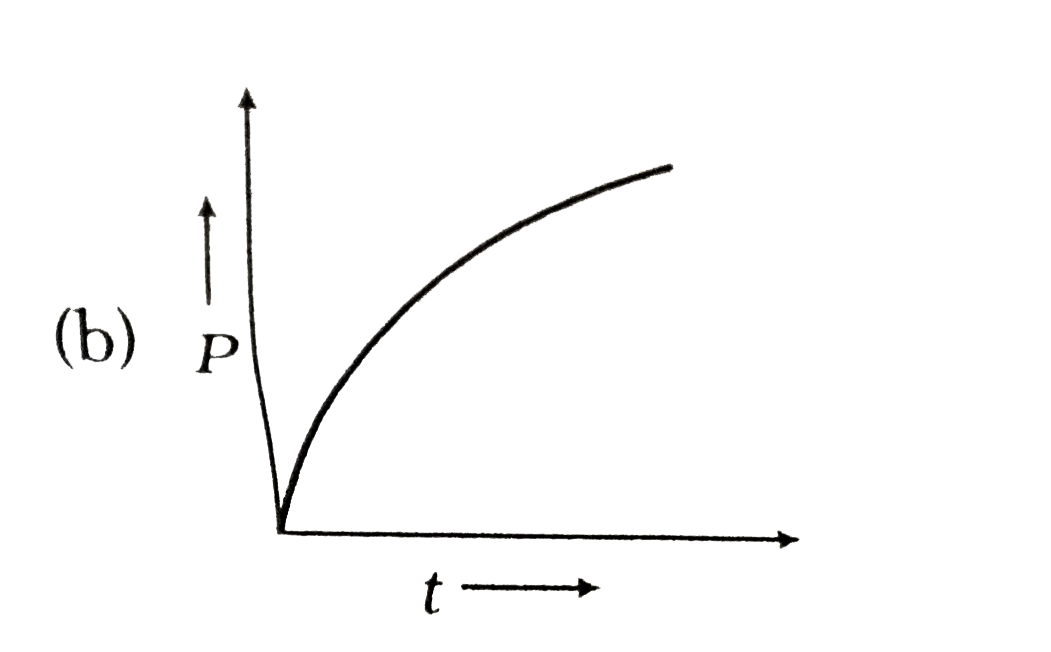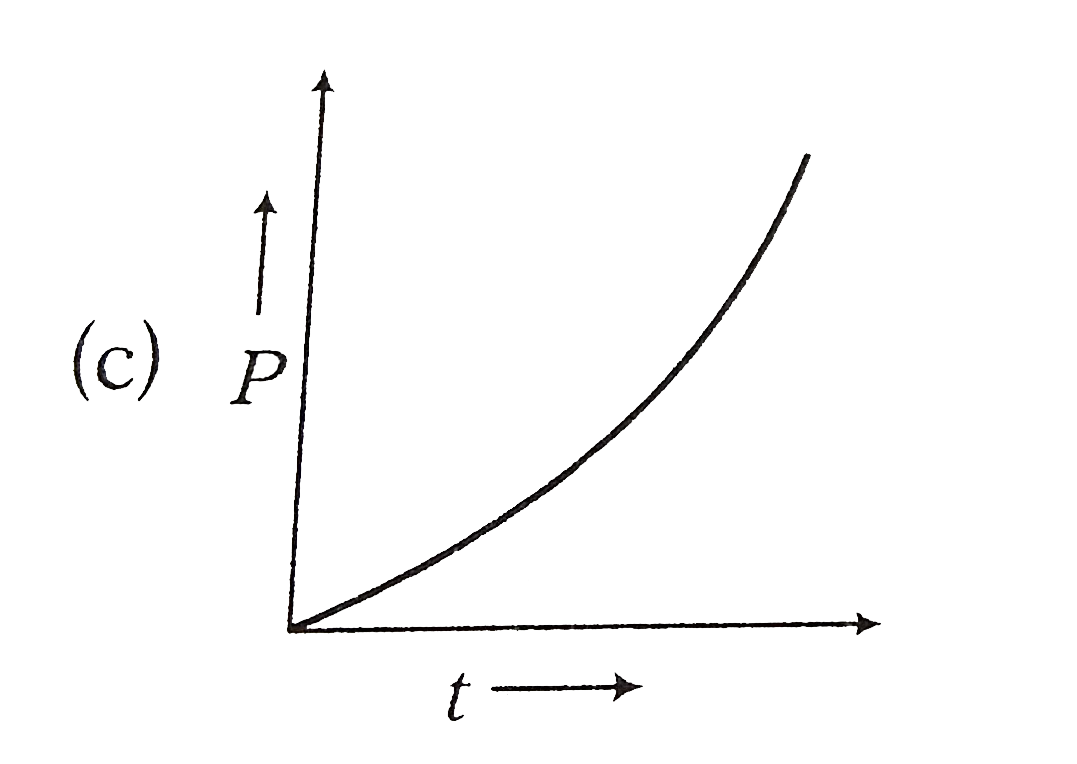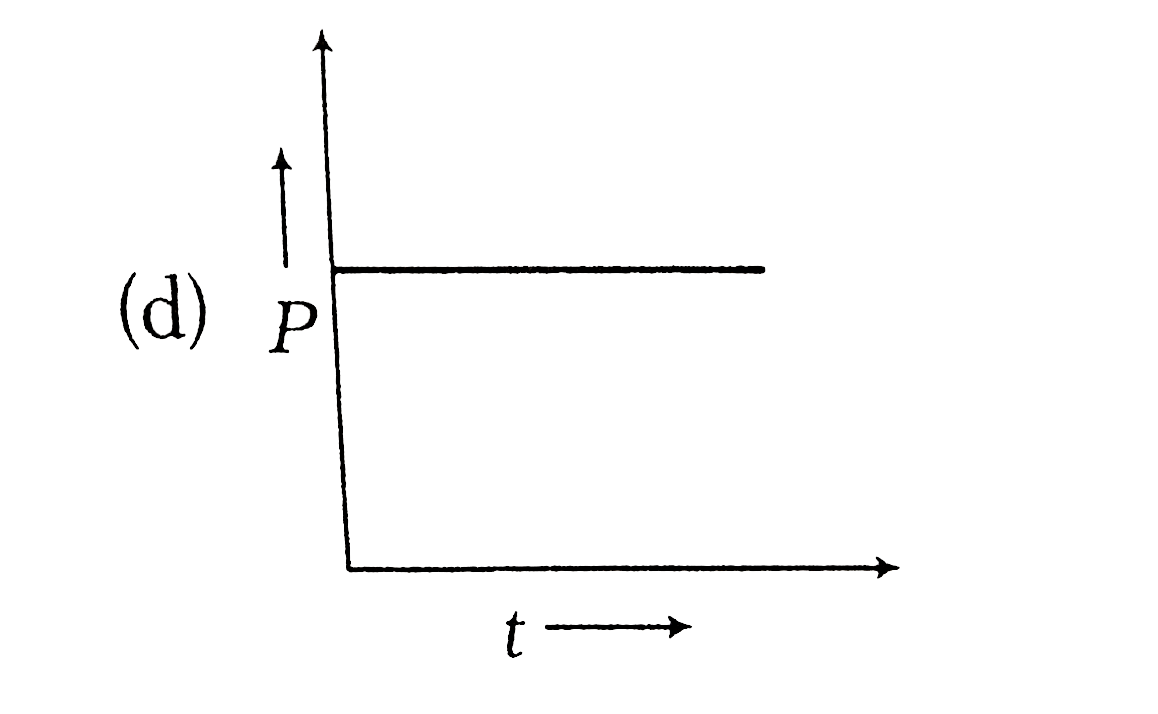For power to constant, the force has to very with speed as:
F∝1v
F∝1√v
F∝v
F∝v2
The correct Answer is:A
Power : P=Fv
For power to be constant: F∝1v
Topper's Solved these Questions
- WORK, ENERGY, POWER AND COLLISIONBOOK - A2ZCHAPTER - WORK, ENERGY, POWER AND COLLISIONEXERCISE - Circular Motion In Vertical Plane
21 Videos
- WORK, ENERGY, POWER AND COLLISIONBOOK - A2ZCHAPTER - WORK, ENERGY, POWER AND COLLISIONEXERCISE - Collision
31 Videos
- WORK, ENERGY, POWER AND COLLISIONBOOK - A2ZCHAPTER - WORK, ENERGY, POWER AND COLLISIONEXERCISE - Conservation Of Mechanical Energy And Linear Momentum
24 Videos
- WAVES AND ACOUSTICSBOOK - A2ZCHAPTER - WAVES AND ACOUSTICSEXERCISE - Chapter Test
30 Videos
Similar Questions
Knowledge Check
Assertion : Power of a constant force is also constant.
Reason : Net constant force will always produce a constant acceleration.AIf both Assertion and Reason are true and the Reason is correct explanation of the Assertion.BIf both Assertion and Reason are true and the Reason is not the correct explanation of the Assertion.CIf Assertion is true, but the Reason is falseDIf Assertion is false but the Reason is true.A flat plate is moving normal to its plane through a gas under the action of a constant force F. The gas is kept at a very low pressure. The speed of the plate v is much less than the average speed u of the gas molecules. Which of the following options is/are true?
AThe pressure difference between the leading and trailing faces of the plate is proportional to uvBAt a later time the external force F balances the resistive forceCThe resistive force experienced by the plate is proportional to vDThe plate will continue to move with constant non-zero acceleration, at all timesA motor drives a body along a straight line with a constant force. The power P developed by the motor muat vary with time t as
A B
B C
C D
D
The force required to row a boat at constant velocity is proportional to the speed. If a speed of 4 kmh−1 requires 7.5 kW, how much power does a speed of 12 kmh−1 require?
View SolutionA particle of mass 0.2kg is moving in one dimension under a force that delivers constant power 0.5W to the particle. If the initial speed (in ms−1) after 5s is.
View SolutionA motor drives a body along a straight line with a constant force. The power P developed by the motor must vary with time t as
View SolutionA particle of mass m moves in a circular path of radius r, under the action of force which delivers it constant power p and increases its speed. The angular acceleration of particle at time (t) is proportional
View SolutionA particle is moving in a circle with a constant speed, the acceleration of the particle has
View Solution
